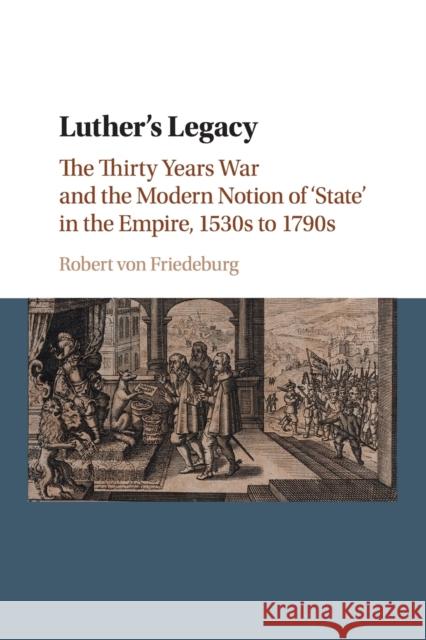Luther's Legacy: The Thirty Years War and the Modern Notion of 'State' in the Empire, 1530s to 1790s » książka
topmenu
Luther's Legacy: The Thirty Years War and the Modern Notion of 'State' in the Empire, 1530s to 1790s
ISBN-13: 9781107530676 / Angielski / Miękka / 2017 / 447 str.
Luther's Legacy: The Thirty Years War and the Modern Notion of 'State' in the Empire, 1530s to 1790s
ISBN-13: 9781107530676 / Angielski / Miękka / 2017 / 447 str.
cena 181,90
(netto: 173,24 VAT: 5%)
Najniższa cena z 30 dni: 130,92
(netto: 173,24 VAT: 5%)
Najniższa cena z 30 dni: 130,92
Termin realizacji zamówienia:
ok. 22 dni roboczych.
ok. 22 dni roboczych.
Darmowa dostawa!
A new account of the intellectual debates that created the German notion of the 'modern state' under the Thirty Years War.











